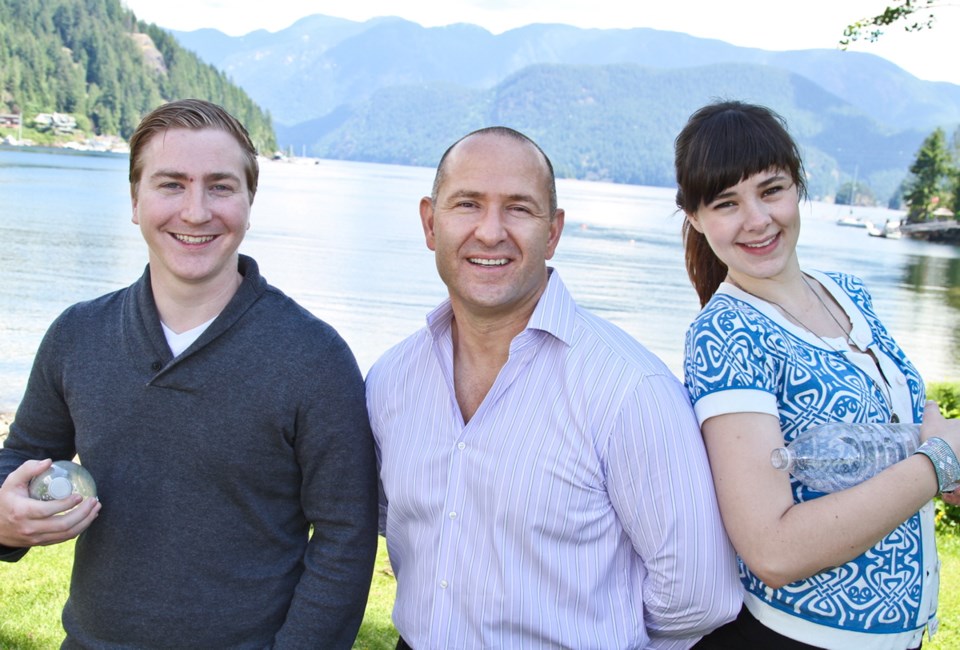If there’s one thing Victoria-raised businessman David Katz, 44, has learned throughout his career, it’s when to look for the signs.
The genesis of his company Nero Global Tracking began in part on the sea off the coast of San Francisco in 1982. Katz had joined his father on the 47-foot sailboat he built. The elder Katz was an early investor in global positioning system technology, which came in handy when he had a heart attack on the journey. His son was able give coast guard rescuers a quick, accurate reading of their location and his father was saved.
“He thought he was going to die. He was giving me his last will and testament,” said Katz. “It’s amazing looking back, how it worked out.”
After studying hospitality at the B.C. Institute of Technology and a stint helping his family run the Douglas Hotel, Katz went back to GPS development. He founded Nero, which uses GPS-tracking to let clients know where their inventory, vehicles and employees are. As business boomed, Katz moved it to Vancouver, where Nero does millions in annual sales.
Katz can now afford to spend more time with his family and pursue his passions. After a few years of soul-searching and philanthropic networking, he is back to the sea with an idea to clean it up.
The Plastic Bank is an organization designed to take plastic waste from the oceans and repurpose it into new, useful items using 3-D printing technology. Katz said the idea came in a series of “signs.”
“I love the ocean. I grew up around the beach for one,” he said. “I remember once looking at the harbour in Manila at an ocean of plastic and thinking, ‘there has to be another way.’”
There was the time he planned to visit Borneo on vacation, but didn’t after reading reviews about garbage on the beaches. Cambodia, same problem.
He watched a video about the Midway Project by U.S. photographer Chris Jordan, who documents the plight of albatross who choke to death on tiny bits of ocean plastic on Midway Island — an atoll off the coast of Hawaii where marine debris from all over the world converges.
“I kept thinking about 20 years ago when I was in London and saw mounds of aluminum cans that people were exchanging for cash. Recycling seemed so foreign then and now it’s so common.”
Katz decided to hash out these thoughts at a recent conference for philantropic entrepreneurs in the Silicon Valley called the Singularity University. Held at a NASA research centre and funded by the likes of Google and Microsoft, the event brings bright minds and funders together with the goal of affecting a billion people.
While exploring the Plastic Bank idea, Katz met Lorenzo Sousa, the founder of PeruRail, who agreed to provide land and financial support for the first plant in Lima — estimated to cost about $250,000.
Here’s how it works: People bring in recyclable plastic waste harvested from oceans and beaches and receive a credit at the Plastic Bank. Credit can be used for education, micro-credit loans and access to 3-D print shops — where that same plastic can be made into household items, parts or tools.
“On one level, it tackles an environmental challenge, but also helps lift people out of poverty,” Katz said. “On the business side, it gives value to repurposed, sea bound plastic, which every corporation should commit to using a certain percentage of.”
David Robbins is a former Oak Bay High classmate and heard about Katz’s idea through Facebook. Though he hadn’t seen Katz in 25 years, he was so taken by the Plastic Bank he asked if he could lend his skills as a communications consultant who has worked with Greenpeace and Council for Canadians, among other organizations.
“Seemed like a brilliant idea and an example of a kind of a business that addressed both social and environment initiatives,” Robbins said from Gatineau, Que., where he lives. He’s taken on the Plastic Bank full-time as it sets to launch collection points in impoverished areas around the globe, joining Katz’s core team of Shaun Frankson, a social entrepreneur who graduated from Royal Roads University, and Cait Hurst.
On its website, the Plastic Bank said a major focus will be on “educating and empowering local people to reveal the value in themselves and to see the value in transforming repurposeable plastics into necessities and entrepreneurial opportunities. Additional efforts will go toward community collection projects that raise the overall standard of living in host communities.”



